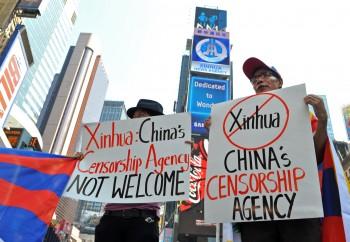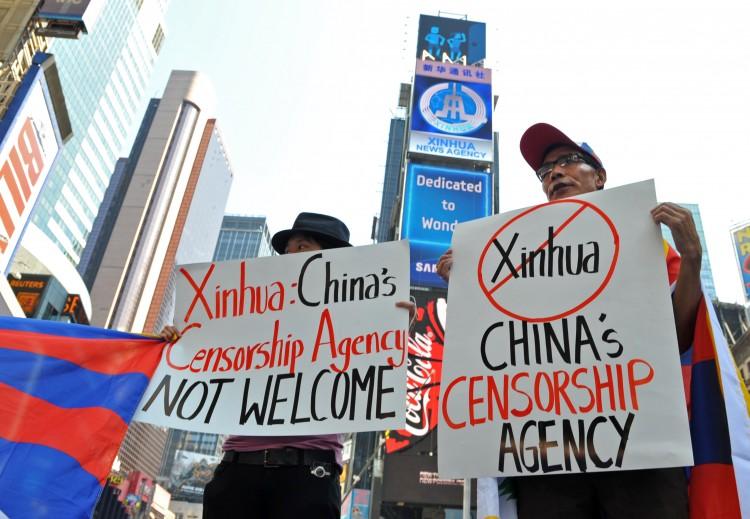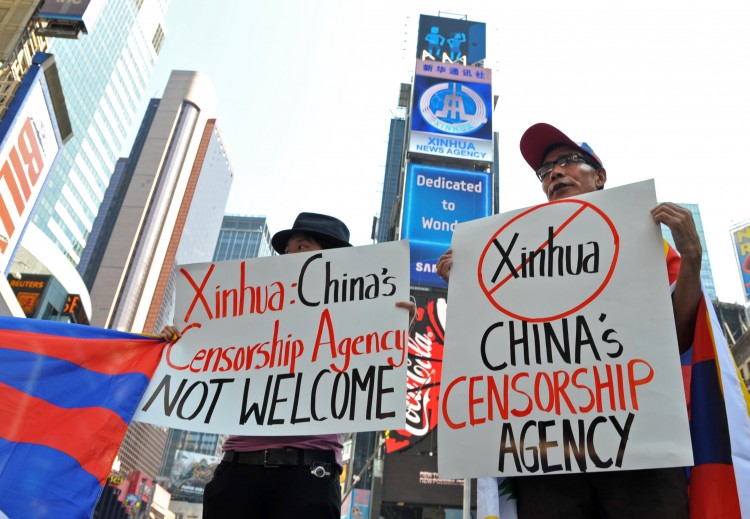Bill Seeks Reciprocity in US-China Media Relations
“There is a very alarming disparity between the number of Chinese state media workers whom we grant visas to and the number of visas the Chinese grant to their American counterparts,” said Rohrabacher, as quoted in a Sept. 13 press release by his office.

Students for a Free Tibet protest below a new electronic billboard leased by Xinhua (2nd from top), on Aug. 1 in New York's Times Square. Stan Honda/AFP/Getty Images
|Updated:


